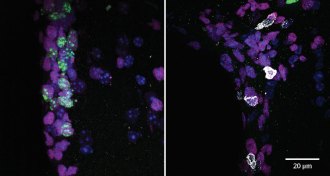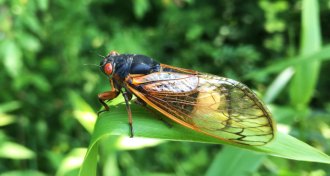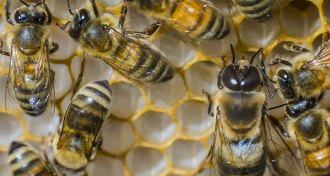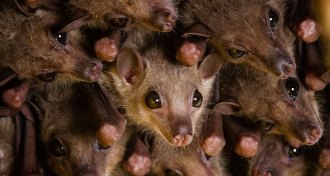News in Brief
-
 Anthropology
AnthropologyAncient DNA reveals the origins of the Philistines
A mysterious Biblical-era population may have fled Bronze Age calamities.
By Bruce Bower -
 Health & Medicine
Health & MedicineRogue immune cells can infiltrate old brains
Killer T cells get into older brains where they may make mischief, a study in mice and postmortem human brain tissue finds.
-
 Climate
ClimateEurope’s latest heat wave has been linked to climate change
Global warming made the June heat wave at least five times more likely to happen.
-
 Health & Medicine
Health & MedicineVision cells can pull double duty in the brain, detecting both color and shape
Neurons in a brain area that handles vision fire in response to more than one aspect of an object, countering earlier ideas, a study in monkeys finds.
-
 Planetary Science
Planetary ScienceWith Dragonfly, NASA is heading back to Saturn’s moon Titan
NASA’s next robotic mission to explore the solar system is headed to Saturn’s largest moon, Titan.
-
 Archaeology
ArchaeologyPeru’s famous Nazca Lines may include drawings of exotic birds
Pre-Inca people depicted winged fliers from far away in landscape art.
By Bruce Bower -
 Life
LifeThese fungi drug cicadas with psilocybin or amphetamine to make them mate nonstop
Massospora fungi use a compound found in magic mushrooms or an amphetamine to drive infected cicadas to mate and mate and mate.
-
 Astronomy
AstronomyA new algorithm finds nearby stars that could host hidden worlds
An algorithm dubbed “Netflix for exoplanets” identified more than 350 stars that, based on their chemistry, might have planets orbiting out of sight.
-
 Life
LifeDried Earth microbes could grow on Mars with just a little humidity
Showing that salt-loving bacteria can double their numbers after absorbing damp air has implications for life on other planets.
-
 Animals
AnimalsU.S. honeybees had the worst winter die-off in more than a decade
Colonies suffered from parasitic, disease-spreading Varroa mites. Floods and fire didn’t help.
By Susan Milius -
 Neuroscience
NeuroscienceMice and bats’ brains sync up as they interact with their own kind
The brain activity of mice and bats aligns in social settings, a coordination that may hold clues about how social context influences behavior.
-
 Life
LifeThis body-on-a-chip mimics how organs and cancer cells react to drugs
The multiorgan system could help test new and existing drugs for effectiveness and unwanted side effects.